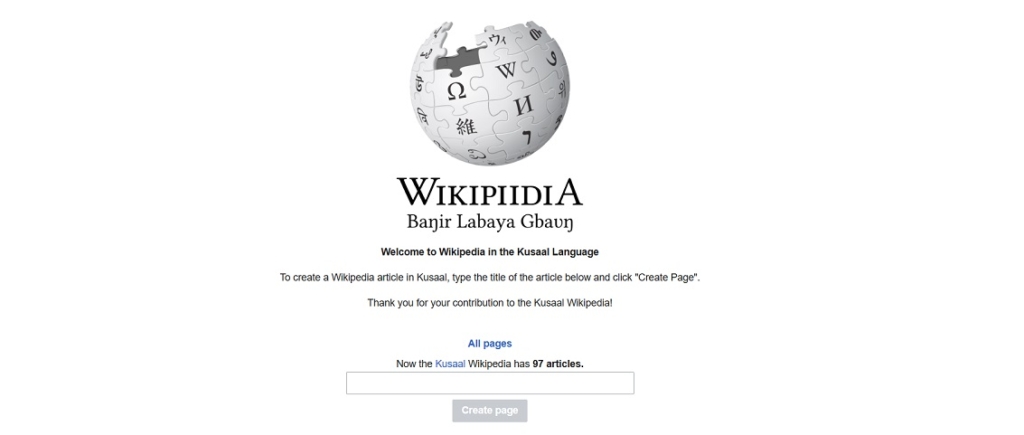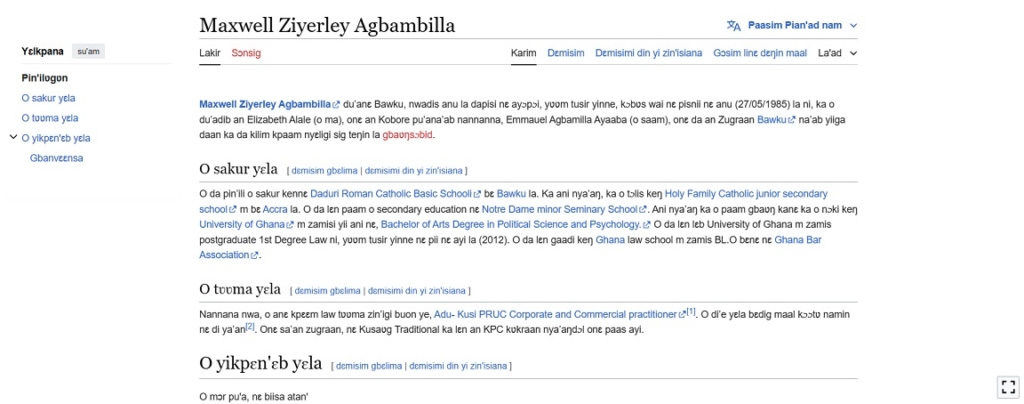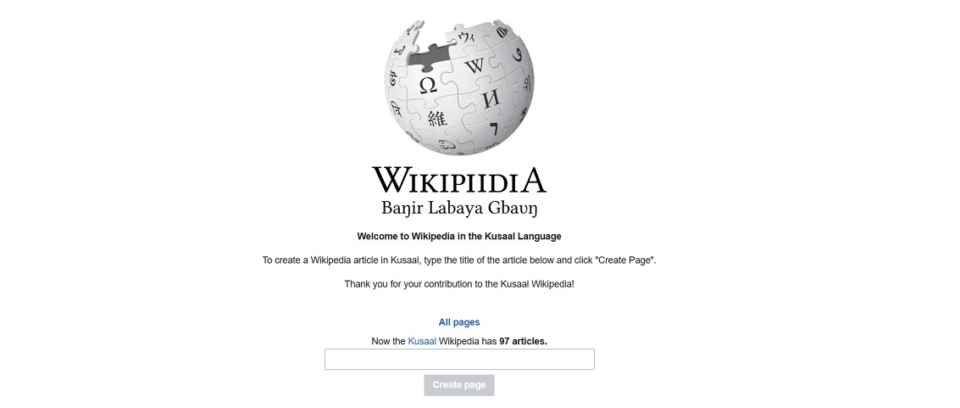The Kusaal language has achieved an important milestone by becoming the eighth Ghanaian language to be officially recognised on Wikipedia.
This acknowledgement was approved on 10th March 2024 and went live on 24th April 2024 - a significant achievement for the Kusaal-speaking community in Ghana and beyond.
Kusaal is spoken mainly in the Upper East Region of Ghana, Burkina Faso, Togo and some parts of West Africa. It plays a crucial role in these communities by preserving traditions, passing down cultural heritage, and fostering a sense of belonging.
Kusaal has two dialects: Agole, spoken in eastern Ghana and Togo, and Toende, spoken in northern Ghana and southern Burkina Faso. Kusaal is a tonal language.

For instance, in Kusaal, negating perfective and future aspects is achieved by using tone marking on preverbal particles. The particles pʊ/ku act as negative future morphemes. When these particles are expressed with a low tone, they mean "will not," while a high tone indicates "did not."
A gateway to cultural heritage and knowledge
The approval of the Kusaal language on Wikipedia follows the recognition of the Dagbani, Gurene, and Dagaare languages, all belonging to the interconnected Mabia/Mole Dagbani language group. Kusaal now stands as the fourth Mabia Language and the eighth Ghanaian language on Wikipedia.
Users can now explore Wikipedia content in Kusaal, gaining access to a wealth of exclusive materials that highlight the rich history, culture, and people of the Kusaal community. This content hub can be found at kus.wikipedia.org, providing a gateway to a multitude of knowledge and cultural insights.
This signifies that the hub will offer significant historical information, names of things and places, profiles of people among others, all aimed at preserving the integrity of the language.

A Triumph of Community Dedication
The approval of Kusaal on Wikipedia is the result of the persistent efforts of volunteers of the Kusaal Wikimedia Community, a group of devoted individuals, mainly students and teachers, dedicated to preserving and advancing their linguistic heritage online. With the support of the Dagbani Wikimedians User Group, this initiative began in November 2022 and has now successfully established Kusaal's presence on Wikipedia.
Kusaal Wikipedia Integration - Triumph of Community Collaboration
The successful integration of the Kusaal language into Wikipedia is a cause for celebration, as it highlights the impact of community-driven efforts in preserving and promoting the Kusaal cultural heritage.
As users navigate the Kusaal Wikipedia, they venture into the rich linguistic landscape of the Kusaal language, participating in the universal sharing of knowledge.
This milestone is expected to inspire other language communities, encouraging them to safeguard their linguistic traditions and showcase their distinct cultural heritage on the global stage.
Kusaal community pledges bright future for language on Wikipedia
The Kusaal Wikimedia Community is committed to preserving and showcasing the rich cultural heritage and traditions of the Kusaal people for generations to come, thanks to the tireless efforts of its dedicated volunteers.
By encouraging all Kusaal speakers to visit, engage, and contribute to the hub, the community fosters a collaborative space that not only promotes the language but also celebrates the community's unique identity and ensures its continued growth and prosperity.
Latest Stories
-
Paris 2024: Opening ceremony showcases grandiose celebration of French culture and diversity
3 hours -
How decline of Indian vultures led to 500,000 human deaths
4 hours -
Paris 2024: Ghana rocks ‘fabulous fugu’ at olympics opening ceremony
4 hours -
Trust Hospital faces financial strain with rising debt levels – Auditor-General’s report
5 hours -
Electrochem lease: Allocate portions of land to Songor people – Resident demand
5 hours -
82 widows receive financial aid from Chayil Foundation
5 hours -
The silent struggles: Female journalists grapple with Ghana’s high cost of living
5 hours -
BoG yet to make any payment to Service Ghana Auto Group
5 hours -
‘Crushed Young’: The Multimedia Group, JL Properties surprise accident victim’s family with fully-furnished apartment
6 hours -
Asante Kotoko needs structure that would outlive any administration – Opoku Nti
6 hours -
JoyNews exposé on Customs officials demanding bribes airs on July 29
7 hours -
JoyNews Impact Maker Awardee ships first consignment of honey from Kwahu Afram Plains
8 hours -
Joint committee under fire over report on salt mining lease granted Electrochem
8 hours -
Life Lounge with Edem Knight-Tay: Don’t be beaten the third time
8 hours -
Pro-NPP group launched to help ‘Break the 8’
9 hours

